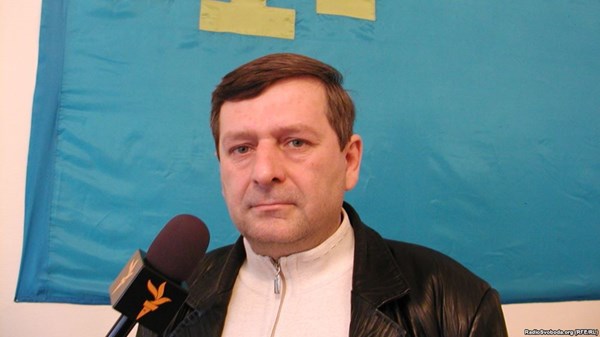German Human Rights Commissioner outraged at sentence given to Akhtem Chiygoz in Crimea
German Human Rights Commissioner Bärbel Kofler is outraged at the eight year prison sentence given to Crimean Tatar leader Akhtem Chiygoz on September 11 in the Kremlin-controlled Crimean court, as announced on September 13 by the German Ministry of Foreign Affairs.
“The sentence is a further reduction of rights of the Crimean Tatars on the peninsula following the Russian annexation,” Kofler observed.
Kofler called it unacceptable to put people in prison for expressing their political opinion.
“It contradicts all the legal principles, especially the International Covenant on Civil and Political Rights, which Russia also ratified,” said Kofler.
According to her, the rights of the Crimean Tatars on the annexed peninsula must be upheld again without further delay, and the international standards in the area of human rights must be observed in their entirety. Kofler noted that this is what the UN’s International Court of Justice (ICJ) asked Russia to do.
On April 19, the ICJ introduced temporary measures in the Ukraine versus Russia case to protect the rights of residents of annexed Crimea. The court ruled to stop the infringement of Ukrainians’ and Crimean Tatars’ rights, resume the activity of the Mejlis, and also permit education in the Ukrainian language on the peninsula. In this way the ICJ obligated Russia to comply with the convention and abolish all forms of racial discrimination.
On September 11, the Kremlin-controlled Supreme Court of annexed Crimea sentenced Akhtem Chiygoz to eight years of imprisonment on charges of organizing mass riots on February 26, 2014.
Chiygoz was arrested in January 2015 for participating in a rally in support of the territorial integrity of Ukraine in front of the Crimean Verkhovna Rada on February 26, 2014. The protesters were opposed by pro-Russian activists, including members of the Russian Unity party.
The “Chiygoz case” has been considered by the Russian court as part of the February 26 case after it was divided into two separate cases at a closed session on July 20: one concerning Chiygoz, the deputy head of the Mejlis, and the other concerning Ali Asanov and Mustafa Dehermendzhy, two other defendants in the case.
